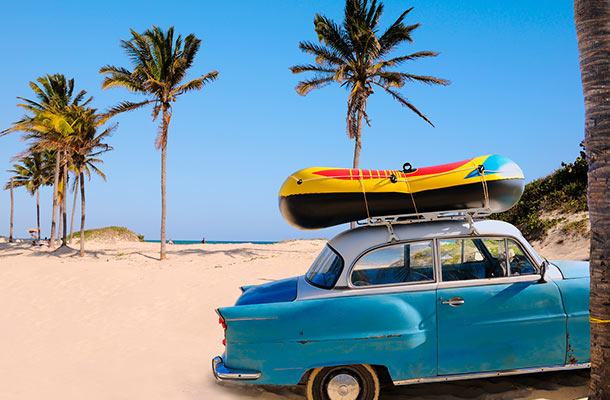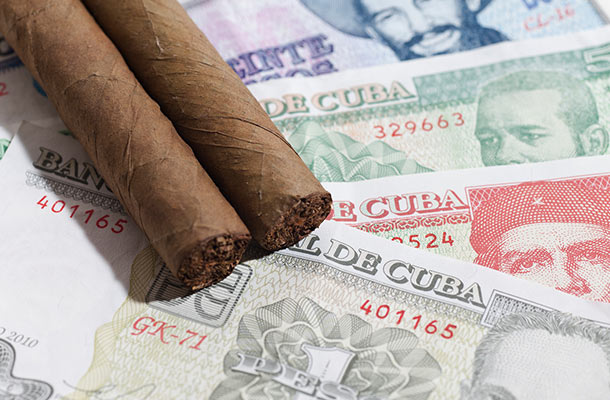Essential Health and Hygiene Tips for Travelers in Cuba
Lying on the Tropic of Cancer, Cuba has year around warm weather year-round. However, in is this climate hurricanes pack a punch, and there are some tropical diseases to be aware of.
 Photo © iStock/rgbspace
Photo © iStock/rgbspace
With its rich culture, endless stretches of beautiful coastline, fascinating architecture and exciting nightlife, the island of Cuba offers something for just about any travel enthusiast. And compared to other similar travel destinations, Cuba is for the most part a clean and healthy place to visit. There are exceptions, however, and certain things to consider before and during a trip that will help to avoid any health or weather related safety issues while you are there.
Health Issues in Cuba
Prior to departing for a trip to Cuba, there are certain vaccinations that are recommended in order to avoid falling ill while there. For instance, an up to date tetanus shot is suggested by most medical clinics.
Additionally you should consider receiving the following vaccinations before heading to Cuba:
- Hepatitis A
- Hepatitis B
- Typhoid Fever
- Booster for Diphtheria
There has been some recent concern over outbreaks of dengue fever, a flu-like illness caused by mosquitoes. The Cuban government is working hard to control the breed of mosquito known to carry the disease, but it's still advised that appropriate precautions be taken when spending time outdoors.
The use of insect repellent that contains DEET is recommended and whenever possible, wearing long sleeved shirts and pants to protect against bites. Another particularly nasty condition that is unfortunately quite common in Cuba is that of haemorrhagic conjunctivitis, an illness that affects the eyes and is typically accompanied by redness, swelling, watering, pain and irritation.
There is no treatment for this condition so if you are unfortunate enough to catch it you'll just have to let it run its course (about 5-7 miserable days). It's also highly contagious so the best way to avoid catching it is to wash your hands thoroughly and often.
Less common conditions include Hepatitis A and viral meningitis, for which there are few treatment options in Cuba. This is why vaccinations are so important.
Additionally, rabies can be a problem in areas where people may come into contact with wild animals. On the off chance you are bitten, seek medical treatment immediately.
The risk of contracting AIDs or HIV is not a huge concern in Cuba; however it's still recommended that you always use a condom when having intimate relations.
The food in Cuba is generally safe to consume, but try to avoid drinking the tap water. Bottled water is readily available as an alternative.
Dairy products, particularly milk, are sometimes served or sold unpasteurized. Consuming unpasteurized dairy can make you extremely ill, so be aware before you take a sip.
Finally, keep in mind that many medications are hard to come by or completely unavailable in Cuba, so if you happen to need a prescription drug be sure to bring it with you when you go.
You will probably need a copy of the prescription (i.e. the original packaging including label) as well as a letter from your physician that confirms your condition and need for the medication in order to get through customs with it.
Weather in Cuba
The climate in Cuba is warm just about all year round, and many travelers will say that there is no bad time to visit. There are however, certain weather and climate related concerns that you should be aware of when deciding when to book your trip.
The hurricane season in Cuba generally lasts from June to November, during which time natural disasters such as mudslides, landslides and flooding may occur and cause anything from significant property damage to health and safety issues.
Hurricanes are particularly dangerous because, although their arrival can generally be predicted, their direction and strength cannot. Additionally, during the months of September and October, there is also a high probability of cyclone activity, which is even less predictable and can have devastating results.
Two recent hurricanes that struck Cuba were Gustav and Ike, which both hit in 2008. They caused significant damage to much of the country, particularly the areas of Pinar del Rio, Isla de Juventud and Hoguin. While it's almost impossible to know if a hurricane will strike while you're visiting, it's important to know what time of year they are more likely to hit so you can be prepared.
What many people also don't realize is that Cuba happens to be located in an active earthquake zone. In fact, there are reportedly some 2,000 seismic events there every year. As a matter of fact, a 5.6 magnitude earthquake struck Cuba in 2010 causing significant damage to property.
Thankfully no lives were lost, however experts predict that there may be several more, larger quakes to hit the island in the near future.
During the summer, temperatures in Cuba can be quite hot and humidity can also reach high levels. While tolerable for most people, those who suffer from existing health conditions or disabilities should take precautions to avoid heat exhaustion such as wearing cool, breathable clothing, limiting time spent outdoors and utilizing air conditioning whenever possible.
The use of sunblock is also recommended if you plan on spending long periods of time in the sun. A trip to Cuba can bring with it relaxation, adventure, excitement and memories to last a lifetime. But in order to ensure that those memories are happy ones, it's important to first consider the health and weather risks of the area before you arrive. That way you can take the appropriate precautions and ensure a safe and healthy trip.
Related articles
Simple and flexible travel insurance
You can buy at home or while traveling, and claim online from anywhere in the world. With 150+ adventure activities covered and 24/7 emergency assistance.
Get a quote


No Comments